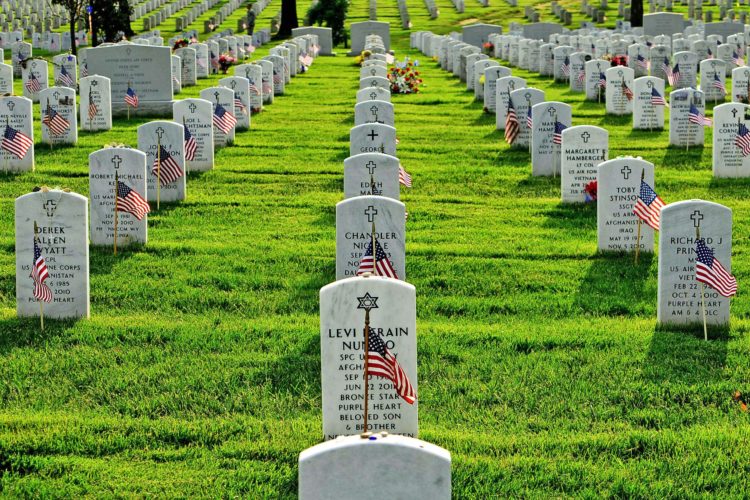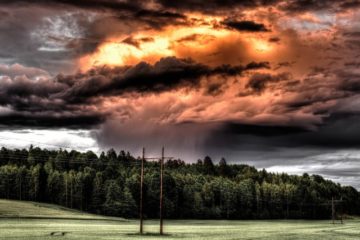A Better Memorial Day

This past Monday was a national holiday called Memorial Day. It is a special day in the United States for remembering those who died while serving in the country’s armed forces. It is sometimes confused with Veterans Day, which is a national holiday to honor all those who have served in the United States armed forces, but haven’t necessarily died.
Memorial Day in an important tradition in the United States and is worth our pause, prayers, and circumspection. In our 243 years as a country, we have been at war for 226 of those years or 93% of our history. That is a lot of fighting and dying and every one of those lives were precious to God and should be honored by us today.
I think one of the best ways we can honor these people’s lives and their deaths is to do the hard work of thinking critically and asking tough questions, so that hopefully in the future we’ll add fewer people to memorialize on Memorial Day.
Below, I will note some important questions. Giving these questions serious thought will take some time and effort, but I think the 1.3 million men and women who have died for our country are worth it, our current and future men and women are worth it, and our potential future draftees – our sons, and now also our daughters – are worth it.
Some questions to think about:
- What did these people die for?
- Did they die defending our freedom?
- If they died defending our freedom, in which wars were our freedoms in danger? From whom? Which freedoms? How did fighting the people we fought defend those endangered freedoms?
- After all these years of near-constant fighting, do we have more freedom of speech, freedom of the press, more freedom of privacy, more freedom from warrantless seizures of property, documents, and persons then we once did? Are we more free from violations of due process, more free from the threat of excessive fines, bail, or cruel punishment, etc. then we once were?
- If we have greater freedoms, how were these greater freedoms won? If we have fewer freedoms than we once did, who were the enemies of our freedom, how did they succeed, and how do we fight them?
- Is the forcing of men, and in the future, women, against their will to work, kill and be killed against their will through a draft system or conscription a violation of their freedom? Does it violate the 13th Amendment? Why or why not? Can you support your answer?
- Did these people we memorialize die defending the Constitution?
- If so, which parts and how did their sacrifice help defend the Constitution and the rule of law? If you read the Constitution and noticed any violations of the Constitution in the way our government operates, how do you think this came to be? How should people in the past and today fulfill their oath to defend the Constitution? Who would they defend it from?
- Article 1, Section 8, Clause 11 states that it is the power of congress to declare war – and no other branch of government. The United States congress has not declared war since World War II. Since then, we have invaded, bombed, couped or attempted to coup more than 40 countries without a congressional declaration of war. Were those violations of the Constitution? If so, how should the Constitution have been defended and who should have defended it? What did our American service men and women die for in those conflicts?
- A major war, and especially a draft, are always accompanied by a government propaganda campaign and the suppression of any speech and any organs of the press that are critical of the war or draft. Are these attempts to control the will of the people violations of American freedoms and Constitutional rights or are they legitimate expressions of the War Powers Clause of the Constitution?
- Did the people we memorialize die to advance freedom, democracy, or human rights around the world?
- If so, which countries are more free, more democratic, and enjoy greater human rights because of our intervention? How do we choose which countries to invade, bomb, and coup for humanitarian purposes and which ones not to?
- Were those humanitarian interventions an expression of the will of the American people? If the actions, financial cost, and loss of life were not an expression of the will of the American people, whose will were they an expression of? For whose will did our countrymen die in our various wars?
- Which countries have posed an existential threat to the United States over the last 243 years?
- What is the definition of a just war? What are its requirements? When have those requirements been met in our past?
I hope that we can honor our fallen by working out thoughtful and informed answers to questions like these. We owe it to them and we owe it to future generations of young men and women, our sons and daughters, who we will ask to fight on our behalf.
I know these are a lot of questions, but maybe you could just pick one to wrestle with.
Until the Good Lord brings about the time when all people beat their spears into plowshares, there will always be the threat of a next war. For us, when it comes, I hope it is the right one and for the right reasons – and we’ve wrestled with these questions enough to recognize when it’s not.
Other Things You Might Be Interested In:



No Comment